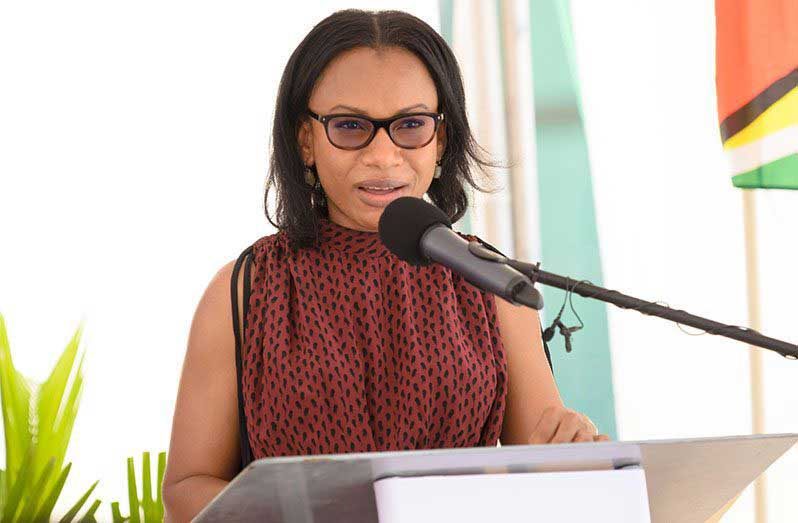— says rehabilitation, not criminalisation, will guide new reforms
MINISTER of Home Affairs, Oneidge Walrond, has announced that sweeping reforms are on the horizon for Guyana’s juvenile justice system, with a renewed focus on rehabilitation, mentorship and reintegration rather than imprisonment and punishment.
Speaking during a live interview on Hits and Jams Radio’s morning programme with hosts Stan Gouveia and Renata Bailey on Tuesday, Minister Walrond reflected on her early career as a Magistrate, noting that the incarceration of young offenders has long been a concern.
According to the Minister, when she sat on the bench as a Magistrate many moons ago, reducing juvenile imprisonment was an issue, but now an overhaul will take place to address it.
REHABILITATION OVER PUNISHMENT
She revealed that her Ministry of Home Affairs will be collaborating with the Ministry of Human Services and Social Protection to roll out a juvenile offenders’ rehabilitation programme, specifically designed to help young people turn their lives around rather than criminalise them.
She explained that the initiative will target juveniles in custody, ensuring that once they have served their time, they can be reintegrated into society as productive citizens.
The Minister also disclosed that reforms to the Juvenile Justice Act are under review, with the Head of the Juvenile Justice Programme tasked with examining the legislation to identify areas that require strengthening and new intervention mechanisms.
According to her, juveniles in state custody until the age of 18 will soon benefit from a structured mentorship component. However, she explained that for that to happen, a full diversification programme will be enacted.
Additional support systems will also be introduced to address the underlying causes of youth-related crimes, including behaviour-modification initiatives and social support services.
A MORE HUMANE APPROACH
Minister Walrond expressed enthusiasm for what she described as “a new era” in juvenile justice, where intervention replaces incarceration.
“Back then, when I was a Magistrate, children found walking around the streets aimlessly were criminalised. Now that has changed,” she said, adding that the law now provides for social and psychological intervention instead.
Under the Juvenile Justice Act of 2018, children under 18 in conflict with the law are handled through a rehabilitative framework rather than punitive measures.
The Act established institutions such as the Children’s Court and the Juvenile Holding Centre and prioritises diversion programmes, legal representation and social reintegration.
An amendment in 2022 allows juveniles to be charged jointly with adults in certain cases, but the emphasis, Minister Walrond reaffirmed, remains firmly on correction, not condemnation.
She pointed out that the Ministry’s upcoming initiatives will represent a “transformative shift” in how Guyana treats its young offenders, one that balances justice with compassion and builds pathways for redemption rather than cycles of incarceration.
Guyana currently has several Children’s Courts across the various Magisterial Districts, offering reformative rather than punitive measures for young offenders under the age of 17.
The Children’s Court is a specialised judicial body designed to handle cases involving minors, focusing on rehabilitation and protection.
Trained Magistrates preside over these courts, having received specialised instruction in juvenile justice to ensure fair and sensitive adjudication.
The establishment of these courts aligns with international standards and best practices advocated by organisations such as UNICEF, which promote a child-centred approach to justice that emphasises rehabilitation and reintegration.
Beyond criminal cases, the courts also handle matters such as custody, contact, guardianship and maintenance.
The Childcare and Protection Agency (CPA) play a key role in facilitating these services, providing support to vulnerable families and ensuring the safety and protection of children in the justice system.


.jpg)











